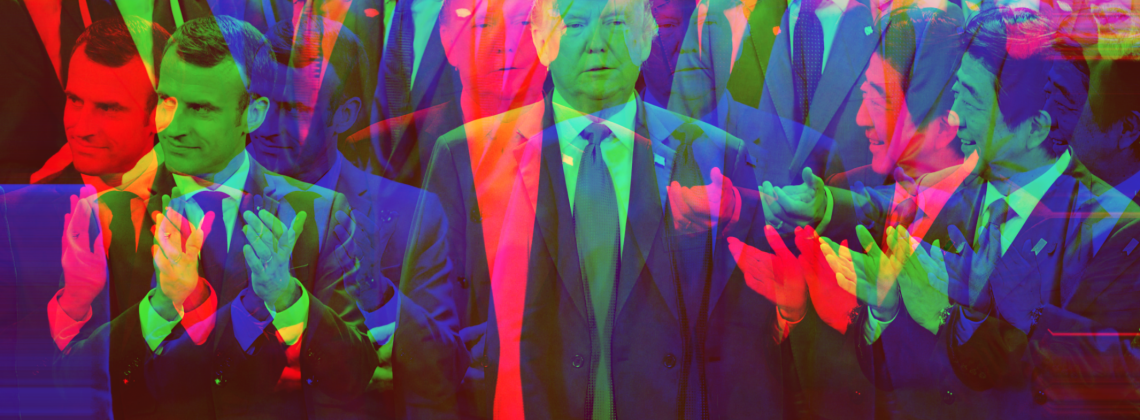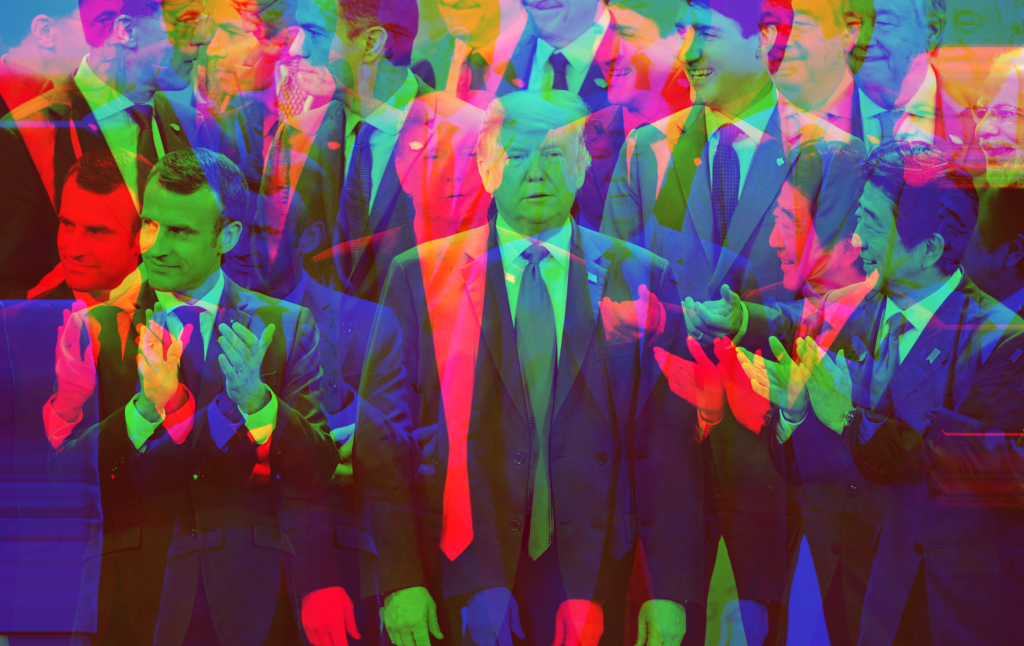

Will Trump’s provocative rhetoric help advance his truest ends?
In the days before the inauguration of President Donald Trump, the Republican’s polarizing rhetoric took center stage, with audacious statements about annexing Canada, reclaiming the Panama Canal, and even incorporating Greenland into the United States. While these claims may sound like imperialist bravado, they are deeply strategic and reflect a broader effort to reassert U.S. dominance on the global stage.
Trump’s strategy hinges on fear—a diplomatic tool aimed at reinforcing the United States’ position as the central actor in global politics. This calculated approach attempts to position the U.S. not merely as a participant but as the orchestrator of international dynamics. Understanding this rhetoric requires delving into its geopolitical implications and underlying motivations.
The new U.S. president has long employed fear as a rhetorical device, emphasizing security and sovereignty to rally his base. In 2024, as the Republican candidate Trump contrasted his first presidency with the alleged “chaos” of the Biden administration, arguing that global conflicts, such as Russia’s invasion of Ukraine and tensions in the Middle East, were less prevalent under his leadership. This narrative portrays Trump as a strongman whose command ensured global stability—a message tailored to reach voters concerned about America’s waning influence and nostalgic for the country’s (now dissipated) post-Cold War supremacy.
Trump’s recent threats—annexing Canada, reclaiming the Panama Canal, and territorial demands over Greenland—are not isolated remarks. Rather, they are calculated moves to project strength and instill uncertainty among allies and adversaries alike. They are designed to shift the focus from other global powers, such as NATO and Russia, to the United States as the ultimate decision-maker in world affairs.
That is why Trump expressed interest in Denmark’s Greenland, an initiative that aligns with some of his broader strategic goals. According to Trump’s narrative, in order to combat Russia as the primary threat to Europe, the United States should coordinate the region’s dynamics while pressuring NATO to comply with Washington’s priorities. Beyond the Arctic’s untapped resources and increasing geopolitical importance due to climate change, Greenland represents Trump’s fear-driven strategy to send a message to the entire NATO community about who should lead. Securing influence in the Arctic region, which holds 13% of the world’s undiscovered oil and 30% of its natural gas, would provide the U.S. with significant advantages over Moscow and Beijing, also interested in Arctic expansion.
The notion of annexing Canada may seem far-fetched, but it serves a dual purpose. Domestically, it energizes Trump’s base by appealing to a sense of American exceptionalism and nostalgia dating back the years of Ronald Reagan (the first Republican to use the “Make America Great Again” motto), the U.S. victory over the Soviet Union in the Cold War, and the nation’s subsequent global supremacy.
Ottawa’s current political situation makes it a ripe target for Trump’s rhetoric. With Prime Minister Justin Trudeau stepping down amid political turmoil, Trump’s comments subtly endorse the Canadian Conservative Party, whose nationalist policies align more closely with his agenda. The new American head of state seeks to push a neighbor and traditional U.S. ally to support his economic vision, as Washington currently sees itself isolated in North America, given the (lingering) presence of Trudeau and the recent election of progressive Claudia Sheinbaun in Mexico, the political heir of Andrés López Obrador.
Trump’s remarks about the Panama Canal reveal his broader concerns about China’s growing influence in Latin America. Historically, the U.S. controlled the canal as a vital economic and strategic asset. Although Panama regained full control in the 1990s, Trump’s rhetoric underscores his intent to challenge the Chinese presence in the region. China’s investments in Panama and its Belt and Road Initiative pushed Trump to forewarn both nations of the potential of America to reassert itself if its interests are threatened.
While the prospect of military intervention remains unlikely, the rhetoric alone reestablishes the U.S. as a force to be reckoned with. Trump intends his narrative and threats to pressure even those who align themselves with his views and policies. The Panamanian President José Raúl Mulino is a conservative—but he will continue to be a target of the White House in order to guarantee the country’s preference for the U.S. over China in the realm of commercial relations. It is also a political strategy to fortify right-wing—or to be more specific, Trumpist—leaders in the region who will soon be competing in presidential elections in key countries such as Chile, Colombia, and Brazil.
The strategy of the new U.S. leader places pressure on international actors in order to prioritize U.S. interests, whether through economic alignment, political support, or security cooperation. However, Trump’s bet is excessively high, as this strategy comes with profound risks. By stoking fear and making incendiary claims, Trump alienates allies and progressively escalates tensions with adversaries. In the end, his tactics may undermine the very alliances that have historically bolstered U.S. leadership, such as NATO and NAFTA. As much as Trump’s strategy has degrees of sophistication in terms of his choice of targets and his medium- and long-term objectives, his verbosity drives any strategic sophistication toward bankruptcy.
Lucas de Souza Martins is a Graduate Fellow at Temple University, pursuing a PhD in Diplomatic History while teaching undergraduate courses on Global Affairs and U.S. History. Martins has received fellowships from the Carter Center’s Democracy Program and the Wilson Center’s Cold War Archives Research Institute. He previously worked as a legislative aide at Brazil’s Ministry of Foreign Affairs, the Federal Senate, and the Georgia State House of Representatives.
I am confident that God will do his will as he has in the past, now and into the future.
I am not confident that humans, whether learned theologians or not are able to fully discern God’s will. This is why we must be humble, seek God’s will, and obey.